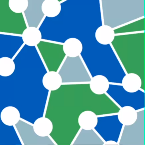Known Issues
Contents
Any current release
- GEO Soft format files - two problems have been found in loading specific GEO Soft format data files.
- geWorkbench can only analyze data from one platform at a time. Some GEO Series (GSE) files can have data from multiple platforms, and opening one of these files this lead to the data being incorrectly read. A feature to select a single platform within such a file will be added. (Note that often you can find associated with such an experiment a "Series matrix format" file, which is platform specific.
- The geWorkbench GEO Soft format parser rejects a file with missing values. This will be fixed.
- Installer - Norton Internet Security "Sonar" may detect and delete a file generated during the installation process, "Install.exe". This will silently terminate the install. If this occurs, disable the Sonar feature during installation, or disable your antivirus protection during the installation.
- PowerPC-based Macintosh computers - Java 6 is not available for the PowerPC platform, regardless of the version of OS X. For this reason, recent versions of geWorkbench which require Java 6 will not run on PowerPC Macintosh computers.
Developement version (for version 2.2.0)
From 1/27/2001 to 2/7/2011 there was a problem with the way probeset labels were associated with the data in the Tabular Microarray Viewer. The problem occurred if the data was ordered in a way different than originally loaded (e.g. by creating a set of markers in a different order). If you checked out a copy of geWorkbench from SVN during this period, please update to obtain the fix for this problem. This problem is thought to only have affected the Tabular Viewer.
geWorkbench 2.1.0
- Sequence Retriever - (April 2011) The hg19 human genome build is not appearing in the list of genomes for DNA sequence retrieval. Being fixed in development version.
- SkyBase component could not retrieve data - RESOLVED - changes in December 2010 to the SkyBase backend database temporarily disabled the ability of geWorkbench to query it. This issue has been resolved with changes to the backend database in January 2011.
- Linux installation error - A problem was seen when trying to install geWorkbench on Ubuntu Linux in a desktop configuration using the installer with included JRE. The same installer does work on another Linux variant. We are investigating. You may be able to use the Linux installer with no JRE instead - just make sure you have a current Java JRE installed on your system. See the geWorkbench installation instructions.
- t-test - the t-test incorrect reports permutation settings into the Dataset History when the t-distribution is used (no permutations involved). This is just a reporting issue. Fixed in development version.
- Color Mosaic - The search by gene name or accession number (probeset id) is not working. Problems are seen both when viewing a t-test result and when viewing the main microarray dataset node. The problem has been fixed in the development version.
geWorkbench 2.0.2
- Alignment Results (BLAST Results Viewer) - Due to recent changes in the NCBI BLAST website (August, 2010), geWorkbench could not retrieve hit sequences to add them to the project. This affected two buttons: "Add Selected Sequences to Project" and "Only Add Aligned Parts". Fixed in release 2.1.0
- Dataset History: the settings used by the following normalizers are not recorded in the Dataset History component: Mean Variance Normalizer, Missing Values Normalizer, Quantile Normalizer, Threshold Normalizer. Fixed in 2.1.0.
- CNKB - not all listed interaction databases are open for querying. See the page CNKB Data for a summary of available databases and interaction types. Fixed in 2.1.0.
geWorkbench 2.0.1
- genSpace - Logging was not working. Fixed in release 2.0.2.
geWorkbench 2.0.0
- Grid Services - No geWorkbench grid services are currently available outside of the Columbia firewall. Fixed in release 2.0.1.
- genSpace - Logging was not working. Fixed in release 2.0.2.
Previous Releases
For issues with previous releases, please see the page Previous Release Issues page.
General
- Filtering a data set may after an analysis has already been run may invalidate objects that arose from the original, unfiltered dataset. Any filtering should be done before any analysis which creates child result nodes, e.g. a t-test, ANOVA etc.
